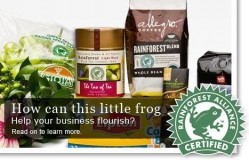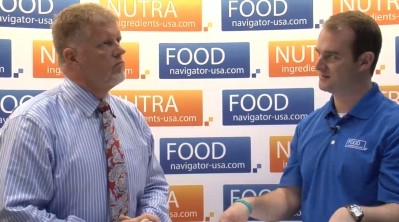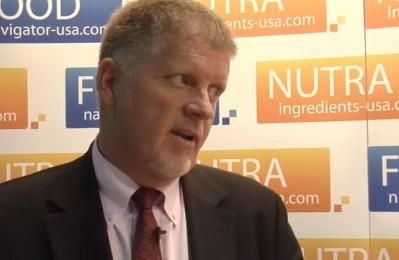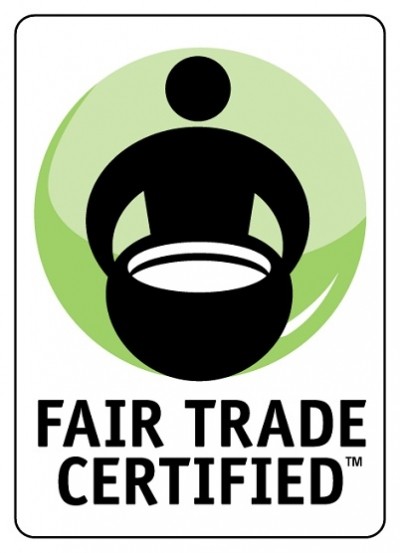What makes an ethical brand (and how do we know one when we see one)?

In theory? Yes, of course. In practice? It depends. And if they do, how do they determine which brands are ‘ethical’ brands?
Is this the start of something big?
In the absence of an overarching definition of ‘ethical’, consumers are inundated with messages and logos about recycled paper, sustainable fishing, fair trade bananas, plant bottles, local sourcing and organics.
Other firms promise to donate money to charity, plant trees or give away a pair of shoes for every product you buy.
But is this the start of something big, or something for customers at Whole Foods to discuss over a fair trade coffee while the rest of us carry on buying what we always have?
Mintel: Sustainable packaging? Yes. Sustainable ingredients? Maybe…
David Browne, senior analyst at market researcher Mintel, said he has “not seen a big jump” in ethical-type claims on new products in the past three years with the exception of environmentally friendly packaging claims (up from 654 in 2008 to 2,809 in 2011).
Meanwhile, the number of new products making organic claims has steadily declined from 2,299 in 2008 to just 1,328 in 2011, while the number of new products featuring ‘all-natural’ claims has remained steady at around 13% of all new launches, despite the fact that ‘natural’ is not necessarily more healthy, ethical or sustainable.
“I think we’ve seen people trade down from organic [which means something concrete] to natural because they think they are doing something, that it’s ‘good enough’,” he says.
But ethical claims will pick up as the economy does, he predicts.
”There is a core group of committed consumers that will buy based on principles, then a slew of occasional consumers that could re-engage if they are feeling more confident about the economy.
“The irony is that if more consumers bought fair trade products, they would become more affordable.”
IMG: Go to where the believers congregate
Jeff Hilton, co-founder of Integrated Marketing Group, says consumers are on a spectrum when it comes to awareness/engagement in ethical sourcing issues.
For example, those at one end of the spectrum may be subliminally aware of certain brands being more ‘ethical’ than others - ‘Ben & Jerry’s is a good company’ - while other shoppers will scrutinize every label.
While a sea of logos - Rainforest Alliance, Marine Stewardship Council, Fair Trade USA - are like wallpaper to many shoppers, they can give one brand the edge over another if all other things are equal, even if consumers don’t know what they mean, he says.
So how should brands engage with consumers about ethical sourcing and sustainability?
Ideally, says Hilton, you’d take a 360-degree approach encompassing packaging, marketing, TV, online and print ads and social media.
But if you don’t have much cash, or your ethical sourcing only extends to some parts of your portfolio, you’re better off engaging with involved consumers directly on online forums where they talk about these issues, instead of trying to talk to everybody, he says.
“Go to where the believers congregate.”
Fair Trade USA: A substantial segment of consumers is willing to pay 5-10% percent more …
Fair Trade USA chief impact officer Mary Jo Cook agrees: “We know that if price and quality and similar, most consumers would likely switch from one brand to another if it is associated with good causes.”
Meanwhile, “third party certification schemes are trusted by consumers, who are suspicious when companies set their own standards”, she says.
“Adding the Fair Trade Certified label to a product results in sales increases of about 10%, and a substantial segment of consumers is willing to pay 5-10% percent more for a product bearing the label.”
While some firms think it is not practical/affordable to use Fair Trade ingredients in high-volume, low priced products, this is not necessarily so, she says.
“If a big brand approaches us, we can create a road map that will get them where they want to go.
“Overall, US sales of Fair Trade certified products surged 75% in 2011.”
Euromonitor: Americans vs Europeans
But Lee Linthicum, head of global food research at Euromonitor International, says the average American is less interested in fair trade and sustainability than the average European.
He notes, for example, that some of the major commitments to sourcing sustainable or fair trade ingredients from multinationals only apply to brands sold in Europe.
Thus, Kraft has made top UK chocolate brand Dairy Milk fair trade, but has not made similar commitments about its chocolate brands in the US.
Hartman Group: Think local
Greg Prang, senior ethnographic analyst at the Hartman Group, meanwhile, says US consumers (less than a third of whom have a passport) are more interested in supporting local farmers, jobs and the economy, than conditions for foreign workers or global warming.
Going viral: The pink slime effect
One thing that is clear from Starbucks’ decision to remove red color from crushed bugs in its drinks following an online petition, and the lean finely textured beef (‘pink slime’) debacle, is that social media can turn a small story into a massive one overnight, and the food industry is under massive pressure to respond, fast.
So while sustainable palm, soy or cocoa might not be on the radar of many US consumers today, a news story about child labor or decimated rainforests that goes viral could easily catapult any of these issues into front-page news overnight.
CBD Marketing: Consumers will punish firms that get this wrong
Indeed, practices such as Nestle’s baby formula promotional tactics or Dole Pineapple’s labor law violations have had a profound impact on some consumers’ buying decisions, and some will vote with their wallets to punish companies for perceived unethical behavior, says Maria Omar, account executive at marketing and PR agency CBD Marketing.
Meanwhile, other firms such as Stonyfield Farms have built a whole brand around an ethical positioning, she says.
“They attribute their financial success directly to their core values that dictate how well food is made, but also how well they treat animals, employees and the environment.
“Third party certification schemes definitely lend to brand integrity but to best navigate consumer quality expectations, brands must listen… to what is being discussed on online discussion boards and social media platforms.”
















